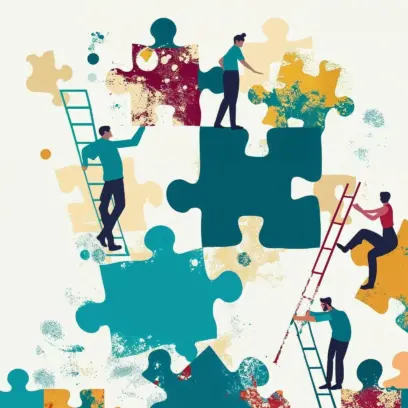Event

Clinical Transition Planning: Cross Sectoral Collaborations
Specialized Clinical DS Network Conference Day
March 25, 2025
Caesar’s Windsor
377 Riverside Drive East, Windsor ON N9A 7H7
Registration cost is $285 + HST
To register for the Specialized Clinical DS Network event (and the OADD conference) click here
Questions? email admin@scdsn.org
| 9:00 – 9:15 a.m. | Opening Remarks |
| 9:15 – 10:30 a.m. |
A Case Study of Effective Developmental Services/Health Collaboration resulting in Successful ALC Transitions
Presenters: Darren Rene, Ryan Guitard, Kassie Harvey This presentation offers an example of effective health-DS collaboration that transitioned a young man out of ALC status at the hospital back to community. This young man with highly complex behaviors was hospitalized following a serious assault and due to conditions associated with his offence unable to return to his home. With no other community options this resulted in ALC status at the hospital. Citing the Supporting ALC Patients with a Dual Diagnosis to Transition from Hospital to Home Practice Guidelines (2023), this example offers an application of transition core competencies that resulted in a successful return to community. These efforts also further strengthened a collaborative relationship between the hospital and DS sector setting a foundation to transition additional ALC patients back to the community in the future. |
| 10:30 – 10:45 a.m. | Break |
| 10:45 a.m. – 12:00 p.m. |
Enhancing Medication Management in Congregate Care Settings: Identifying Areas for Improvement and Implementing Best Practices
Presenters: Chantelle Farrugia, Taylor Gilbert, Carmela Campanella-Borraccia Medication management is a critical component of congregate care settings, significantly impacting the quality of life for individuals receiving support. However, as non-regulated health professionals administer medications, it is essential to identify areas for education and monitoring of medication incidents. Kerry’s Place has acknowledged this need and adapted policies, procedures, and processes to address gaps in medication administration. Through data analysis of medication incidents, this presentation will highlight the importance of effective medication management, aligning best practices, and practical applications. A case study will demonstrate the success of the medication management committee’s work, showcasing the significance of improved medication management in enhancing the well-being of individuals in congregate care settings. |
| 12:00 p.m. – 1:00 p.m. |
Lunch
(Buffet lunch is provided) |
| 1:00 – 2:30 p.m. |
Justice System 101: Navigation, Collaboration and Clinical Support for Persons with Dual Diagnosis
Presenters: Marnie Lye, Courtney Hutson, Samantha Airhart, Charity Eby The Clinical Justice Program (CJP), a partnership between the Community Networks of Specialized Care – Central East (CNSC-CE) and Centre for Behavioural Health Sciences (CBHS), provides comprehensive clinical services to assist individuals with developmental disabilities and high support or complex care needs to navigate the criminal justice system. The CJP seeks to provide meaningful support to these individuals and their support teams to ensure equitable access and mitigate recidivism risk. The audience will participate in a Criminal Justice System 101 course with detailed navigational instructions on how to provide support through the many transitional stages of the justice process. This will include how specialized clinical supports, such as Applied Behaviour Analysis and Adapted-Dialectical Behaviour Therapy, can be used to assist throughout the entirety of the process. We will highlight the critical planning stages used by skilled clinicians, both within and outside the developmental sector, and how these work in tandem with justice professionals to achieve meaningful access to justice. A case study and takeaway tools will be provided to assist the audience in their support journeys moving forward. |
| 2:30 – 2:45 p.m. | Break |
| 2:45 – 3:45 p.m. |
Alternate Level of Care: Clinical Planning for Persons with Medical and Behavioural Complex Needs
Presenters: Cindie Evans, Whitney Faragher This workshop will be highlighting the importance of exploring and preparing medically and behaviourally complex individuals in a dynamic way on their journey to access supports through clinical care planning. Many times, cross sectoral planning is essential to provide linkages to specialized services to stabilize persons with complex medical and behavioural needs. Persons who are identified as Alternate Level of Care need a comprehensive transition planning team to understand the persons identified support needs. Often persons become so dis-regulated that they require support through various service systems such as: health, mental health, and developmental services. This session will provide a cross sectoral approach using a case study, to demonstrate how collaborations are effective to develop comprehensive personalized clinical care plans for seamless transitions from Alternate Level of Care into the community. |
| 3:45 – 4:00 p.m. | Wrap up and Closing Remarks |
